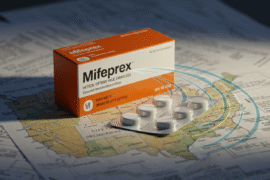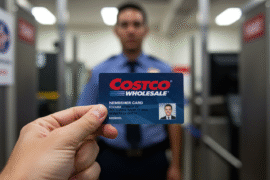This article may contain references to products or services from one or more of our advertisers or partners. We may receive compensation when you click on links to those products or services. Nonetheless, our opinions are our own.
Key Highlights
- Private insurance companies provide health plans that offer several health benefits.
- When picking the right type of plan, consider your health insurance coverage needs and your budget.
- Common network types in these health plans are HMOs, PPOs, and EPOs.
- It’s essential to understand terms like deductible, copay, and coinsurance when comparing plans.
- The Affordable Care Act has changed how commercial health insurance operates.
Introduction
Navigating health insurance coverage can be confusing, especially with the changes brought by the Affordable Care Act. The first step in finding the right plan is to know your options. A good plan should meet your needs and provide peace of mind. This guide explores commercial health plans, detailing their benefits and how they might work for you. From key terms to plan comparisons, we aim to help you make informed healthcare decisions. Choosing preventive care is always a smart choice, regardless of the plan you select.
Understanding Commercial Health Plans
Commercial health plans are a major option for individuals and families seeking health insurance. Unlike government programs such as Medicare or Medicaid, these plans are offered by private insurance companies. Each company provides various pricing structures, benefits, and plan types.
Selecting the best health insurance plan can be challenging due to the wide range of available options. Understanding how commercial health insurance works is essential for making an informed decision. Let’s explore the key aspects of these plans to help you determine if they fit your healthcare needs.
Defining Commercial Health Insurance
Commercial health insurance is provided by private companies, which may be large national insurers or smaller regional providers. These insurers develop and manage different health plans, including Health Maintenance Organizations (HMOs), Preferred Provider Organizations (PPOs), and Exclusive Provider Organizations (EPOs). Each type has distinct rules regarding healthcare access and costs.
With a commercial health plan, you pay a monthly premium to the insurer. In return, the insurer helps cover healthcare expenses, including doctor visits, hospital stays, prescription medications, and preventive care. Coverage levels and out-of-pocket costs vary based on the selected plan.
How It Differs from Government-Sponsored Plans
A key distinction between commercial health insurance and government-sponsored plans is the target audience and funding source. Medicare primarily serves individuals aged 65 and older, while Medicaid assists low-income individuals and families. Commercial plans, on the other hand, are available to a broader audience and can be obtained through employers or purchased independently.
The Affordable Care Act introduced significant changes to health insurance by increasing accessibility and consumer protections. The creation of the Health Insurance Marketplace allows individuals and small businesses to compare and purchase health plans.
Despite federal regulations, commercial plans still vary in design and pricing, offering greater flexibility than standard government programs. This flexibility is beneficial for those seeking health coverage tailored to specific healthcare needs.
Evaluating Your Health Insurance Needs
Before selecting a commercial health plan, assess your personal healthcare needs and financial situation. Reviewing your medical history, anticipated healthcare expenses, and budget is crucial for making an informed choice.
By identifying key priorities, you can focus on plan features that matter most, ensuring your selection aligns with your overall well-being and financial stability.
Assessing Your Health Care Needs and Budget
Consider your current health status and any potential medical needs in the upcoming year. Do you have chronic conditions requiring frequent doctor visits or medications? Are you planning a major medical procedure? Understanding your healthcare needs is an essential first step.
Familiarize yourself with insurance terms such as deductible, copay, and coinsurance, as these directly impact your out-of-pocket costs. A deductible is the amount you must pay for covered services before your insurance begins paying. A copay is a fixed amount you pay for healthcare services, while coinsurance represents the percentage of costs you share with the insurer after meeting your deductible.
A lower-premium plan might seem cost-effective but could result in higher out-of-pocket expenses. Conversely, a higher-premium plan might provide better coverage and reduce long-term costs if you require frequent medical care.
The Importance of Network Providers in Choosing a Plan
Network coverage is a critical factor when selecting a health plan. Insurance providers establish agreements with specific doctors, hospitals, and healthcare facilities, forming a provider network. Choosing in-network providers typically results in lower costs.
HMO plans require members to select a primary care physician (PCP) and obtain referrals for specialist visits, while PPO plans offer greater flexibility by allowing out-of-network visits at a higher cost. POS plans blend elements of HMOs and PPOs, requiring a PCP while permitting some out-of-network care.
If you have preferred healthcare providers, verify their inclusion in the plan’s network before enrolling. If provider flexibility is a priority, a PPO may be the best option. For those seeking lower costs and structured care, an HMO could be a better fit.
Beginner’s Guide to Choosing a Commercial Health Plan
Selecting a health plan may seem complex, but breaking the process into manageable steps simplifies decision-making. The following guide outlines key considerations to help you navigate your options.
What You Need to Get Started
Before comparing plans, gather essential information to streamline the selection process:
- Open Enrollment Dates: Check employer-provided insurance open enrollment periods or Health Insurance Marketplace deadlines. Enrollment periods determine when you can sign up or make changes to your health plan.
- Coverage Needs: Assess the healthcare services you require and your financial limitations. Understanding these factors ensures you select an appropriate plan.
- Network Preferences: If you prefer specific doctors or hospitals, confirm their inclusion in your chosen plan’s network.
- Prescription Coverage: Make a list of your medications and review the plan’s formulary (list of covered drugs) to ensure your prescriptions are included.
Step 1: Researching Available Plans
Explore available health insurance plans through your employer, the Health Insurance Marketplace, or direct insurer websites.
Compare plan details using the Summary of Benefits and Coverage (SBC) document, which outlines covered services, costs, and provider networks.
| Feature | HMO | PPO | EPO |
|---|---|---|---|
| Costs | Lower premiums and lower out-of-pocket costs for in-network services | Higher premiums, out-of-network flexibility with higher costs | Similar to PPO, but no out-of-network coverage |
| Choice of Providers | Limited to network, referrals required | More flexibility, referrals usually not required | Limited to network; referrals may or may not be required |
| Prescription Coverage | Tiered formulary | Tiered formulary | Tiered formulary |
Step 2: Comparing Plan Benefits and Costs
Compare multiple health plans to determine the best fit. Consider the following factors:
- Health Benefits: Evaluate coverage for doctor visits, hospital stays, emergency care, mental health services, and maternity care.
- Deductible: Understand how much you must pay before insurance coverage begins.
- Copay: Review fixed costs for doctor visits, medications, and urgent care services.
- Coinsurance: Determine the percentage of costs shared between you and your insurer after meeting the deductible.
- Out-of-Pocket Maximum: Identify the maximum amount you will pay for covered services within a plan year.
Conclusion
When choosing a commercial health plan, consider your healthcare needs and financial capacity. Understanding how these plans differ from government-sponsored options enables better decision-making. Take time to compare available plans, evaluate benefits, and review provider networks to ensure adequate coverage. Prioritizing your health and financial well-being will help you select a commercial health plan that meets your unique needs.
Frequently Asked Questions
What’s the Difference Between HMO, PPO, and EPO Plans?
HMOs require in-network care and referrals for specialists, PPOs allow out-of-network access at higher costs, and EPOs limit coverage to network providers without requiring referrals.
Can I Switch Plans If I’m Not Satisfied?
Plan changes are typically allowed during open enrollment or after qualifying life events (e.g., marriage, job loss, or childbirth).
How Do Commercial Health Plans Compare to Government Plans?
Medicare and Medicaid are government-funded programs, whereas commercial plans are offered by private insurers. Commercial plans provide diverse coverage options tailored to individual needs.
How Do I Determine the Right Commercial Plan for Me?
Assess your healthcare needs, financial capacity, and provider preferences. Compare plan costs, benefits, and provider networks to find the best fit.

Reviewed and edited by Albert Fang.
See a typo or want to suggest an edit/revision to the content? Use the contact us form to provide feedback.
At FangWallet, we value editorial integrity and open collaboration in curating quality content for readers to enjoy. Much appreciated for the assist.
Did you like our article and find it insightful? We encourage sharing the article link with family and friends to benefit as well - better yet, sharing on social media. Thank you for the support! 🍉
Article Title: Commercial Health Plans: Are They the Right Choice for You?
https://fangwallet.com/2025/03/12/commercial-health-plans/The FangWallet Promise
FangWallet is an editorially independent resource - founded on breaking down challenging financial concepts for anyone to understand since 2014. While we adhere to editorial integrity, note that this post may contain references to products from our partners.
The FangWallet promise is always to have your best interest in mind and be transparent and honest about the financial picture.
Become an Insider

Subscribe to get a free daily budget planner printable to help get your money on track!
Make passive money the right way. No spam.
Editorial Disclaimer: The editorial content on this page is not provided by any of the companies mentioned. The opinions expressed here are the author's alone.
The content of this website is for informational purposes only and does not represent investment advice, or an offer or solicitation to buy or sell any security, investment, or product. Investors are encouraged to do their own due diligence, and, if necessary, consult professional advising before making any investment decisions. Investing involves a high degree of risk, and financial losses may occur including the potential loss of principal.
Source Citation References:
+ Inspo
There are no additional citations or references to note for this article at this time.












































